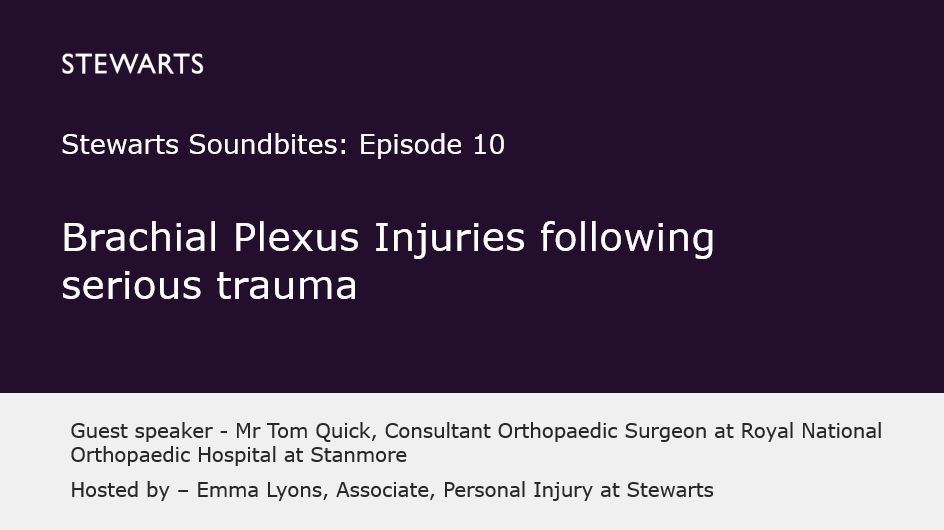Medical experts owe a duty to the court to provide evidence only on subject matters within their expertise. Paralegal Rebecca Walters and Associate Amy Goldman review the judgment in a case brought against Liverpool University Hospital NHS Foundation Trust and a dentist. The case serves as a warning that experts who depart from this duty risk being hit with a third-party costs order.
In Robinson v (1) An NHS Trust and (2) Dr Mercier [2021] 9 WLUK 400, the court made a third-party costs order against Dr Mercier, a general dental practitioner, who provided expert evidence for the claimant on allegations against the defendant trust’s oral maxillofacial surgeon. The allegations concerned a tooth extraction performed under general anaesthetic.
During cross-examination at trial, Dr Mercier conceded that he had never been a maxillofacial surgeon, nor had he performed surgical tooth extraction under general anaesthetic for more than 20 years. He also acknowledged that the treating maxillofacial surgeon was “better placed” than he was to give expert evidence in the case.
Upon the conclusion of Dr Mercier’s evidence, the claimant discontinued her claim. Recorder Hudson granted a third-party costs order against Dr Mercier for the defendant’s costs of £50,543.85. This was on the basis that there was a “causative link” between Dr Mercier’s conduct and the claimant discontinuing her claim and incurring the costs sought to be recovered (Travelers Insurance Company Ltd v XYZ [2019] UKSC 48).
Principles
Medical experts should be familiar with part 35.2 of the Civil Procedure Rules, its practice direction and the accompanying guidance for the Instruction of Experts in Civil Claims 2014. The points most relevant to this article are:
- An expert has a duty to the court that overrides any obligation to those instructing them.
- Experts have an obligation to assist the court to deal with cases proportionately, expeditiously and fairly.
- Experts should assist the court by providing objective, unbiased opinions on matters within their expertise.
Under section 51(6) of the Senior Courts Act 1981, the court has the power to order a party’s legal or other representative to meet all or part of any costs incurred as a result of their improper, unreasonable or negligent act or omission (wasted costs).
Keys points to experts
Area of expertise
To avoid being “grossly unhelpful and wholly unreliable” to the court, as in Robinson, a medico-legal expert must resist the temptation to accept instructions that require them to express an opinion on medical practice that falls outside their area of expertise. Careful consideration should be given as to whether their experience and qualifications are appropriate for the case. To assist with this, it may be prudent to review their opponent’s CV and express any concerns to their instructing solicitors if their experience does not match their counterpart’s.
Should a question or issue fall outside of their expertise, an expert should inform their instructing solicitors without delay.
Recorder Hudson condemned Dr Mercier’s “flagrant reckless disregard” for his duties to the court. She said it would have been obvious to him from the outset and throughout the proceedings that he was not able to comment on the alleged failures of a person “exercising a wholly different role”. Recorder Hudson highlighted that not only had Dr Mercier never assumed the role of an oral maxillofacial surgeon, but his CV did not indicate that he had any understanding of the role, experience and facilities of such a practitioner.
Contemporaneous experience
To be best placed to provide an opinion on the appropriate standard of care, an expert should only comment on subject matters of a nature similar to that of their own practice at the time the negligence occurred. In her judgment, Recorder Hudson highlighted that more than 20 years had passed since Dr Mercier had performed a tooth extraction under general anaesthetic.
Retired experts must consider whether they are still in a position to comment on what a reasonable body of professionals should or should not know or do.
Duty to court cannot be delegated
This judgment reminds experts that they cannot delegate their duty to the court to those instructing them or their opponent.
Recorder Hudson rebutted Mr Mercier’s argument that the other party failed to question his expertise during proceedings, commenting that it is not the duty of another party to “police” an expert’s duty to the court.
Understanding the legal test
At the time of trial, an expert must be able to demonstrate a proper understanding of the test to be applied when commenting on whether a medical practitioner has been negligent.
Recorder Hudson further criticised Dr Mercier for demonstrating a “fundamental lack of understanding of the legal test” after he unwittingly proclaimed that the Bolam test had not been satisfied when giving his evidence. (The Bolam test is used in clinical negligence cases to determine the standard of care professionals owe to those they serve.) This resembles Thimmaya v Lancashire NHS Foundation [2020] 1 WLUK 437, in which the defendant secured a third-party costs order against the claimant’s expert who failed to demonstrate a proper understanding of the Bolam test/Bolitho test (an amendment to the Bolam test) at the time of trial.
A way around QOCS
The introduction of qualified one-way costs shifting (“QOCS”) in April 2013 reformed the way in which parties recover their costs in clinical negligence claims. Under this regime, a defendant is generally no longer able to recover their costs from a claimant even if they successfully defend a claim.
The judgment in Robinson, now the second significant clinical negligence case in which a defendant has successfully recovered their costs from a claimant expert, signifies the court’s willingness to depart from the QOCS regime where necessary.
It is also worth noting that the judges in both Robinson and Thimmaya commented on the significant impact the experts’ conduct had on a public body, indicating a particular interest to protect the NHS from wasted costs.
That said, experts will be reassured by Recorder Hudson’s endorsement of the high bar for third-party costs in such circumstances. This was observed in Walker v TUI UK Ltd [2021] 1 WLUK 398, where a third-party costs order application against a single joint expert in a holiday food poisoning claim was rejected for failing to meet the high threshold test set out in Philips v Symes (no.2) [2004] EWHC 2330 (Ch).
Conclusions
For an expert to assist instructing solicitors, parties to proceedings and the court, they should:
- Accept instructions only on matters within their expertise
- Review their duty to the court throughout proceedings
- Assume sole responsibility for their duty to the court
- Immediately notify instructing solicitors if they are unable to comment on a particular question or issue as it falls outside their expertise
- Understand the relevant legal tests
You can find further information regarding our expertise, experience and team on our Clinical Negligence pages.
If you require assistance from our team, please contact us.
Subscribe – In order to receive our news straight to your inbox, subscribe here. Our newsletters are sent no more than once a month.






